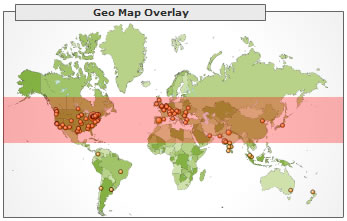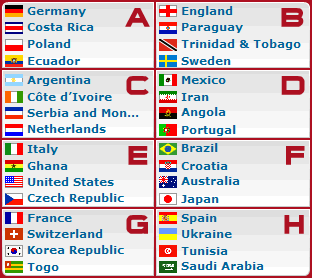Ontario, Leave Calculus Alone
Wednesday, December 28, 2005

I wanted to stay away from this topic because I am not an educator, but I cannot ignore it for I am a concerned father.
I am talking about the proposed change to Ontario's high-school Calculus: according to the theglobeandmail.com "the Ontario government is studying a proposal to change the current calculus high-school curriculum and scrap certain sections."
I think we all know that our world has changed in ways unimaginable twenty years ago: communism is a vestige of the past (who would have thought it?); the proliferation of the internet has opened an immense global market, where anyone (buyer or seller) can tap into; we can easily communicate with anyone around the world with zero time delays. We need to face the fact that we live in an economy of services that requires, more and more, the mind to succeed and not brute force. Then why, I wonder, would anyone want to cripple our children by diminishing their ability to learn advanced Mathematics?
We should join David Johnston, the University of Waterloo's President, by writing directly to Gerard Kennedy, the
Minister of Education, expressing our concerns in regards to this proposal.
I, for one, ask Mr. Kennedy not to take away Calculus or dumb it down to a level of uselessness because, I'll say it bluntly, we will be relegating a whole segment of our society to menial jobs of the future--Canada cannot and will not be able to compete or contribute in a global economy without professional mathematicians, scientist, or engineers.
I argue that this proposed change will put our country at a great disadvantage, compared to developing economies such as China and India. It is not an exaggeration to think that such a small change in the current high-school curriculum could lead to such a disastrous outcome, specially when the intention is to make average students' life easier by removing "hard stuff" from the classroom, thus, presumably, making most students acquire a stronger basis in other subjects. But what about the curious students sitting in a classroom that caters to the lower common denominator? Why would these students want to pursue advanced degrees requiring higher Mathematics, when all they are being taught are variations of simple algebra?
A curious mind needs to hear and be taught that Calculus has put human beings on the moon; that we can calculate the age of our Planet because we can use Calculus to find decaying rates of carbon in organic matter; we need to explain that a train leaving Toronto to Vancouver has a velocity that is related to distance and time, and that its acceleration is neatly tied in with the changes of rates that lead directly into the same Calculus that Newton and Leibniz, separately, invented four centuries ago.
The education of our youth is the key to Canada's prosperity and the key to forge the leaders of a better tomorrow. Instead of letting the world catch up to our achievements, we should set the bar higher to challenge our high-school students; instead of simplifying the curriculum, we should make it harder and more interesting, accompanied with better training for our teachers; we need to make our classrooms smaller and instill in the students to achieve greatness academically, which will lead them to live better lives; we should try to keep our high school students interested longer so that all graduate with high school diplomas and have the desire to pursue post-secondary educations.
We have a problem, indeed, but it is not what has surfaced as falling graduation rates, which is only a symptom of a bigger problem. Instead of forcing student to stay in school in order to get driver licenses, we should figure out why they are dropping out--perhaps school is too boring, or we are not emphasizing why an education in the twenty-first century is so important. Once we have a solution to the real problem, our job then becomes a matter of motivation and proper training, not hand holding or deception by telling our children that giving up will be good for their future, and that because Calculus is "hard" we will make it easier for them.
If it were only that simple. Simplifying the Mathematics curriculum will hurt Ontario more than anyone expects. These type of changes have a compounding effect and removing calculus from the curriculum will probably not have an effect within five years of the change, but we will see it being a big problem twenty, fifty, or one hundred years from now. These are exponential rates of change we are talking about here, unfortunately and ironically, if the curriculum is simplified, the children that will be affected the most will not even understand what that means.
We must prepare the new generations to face one of the main challenges--and opportunities, for that matter--in a world without boundaries. Something we call outsourcing and off shoring, and that we, Canadians, view only as manufacturing jobs moving to countries with cheaper manual labour. However, we need to rethink what outsourcing in the new millennium really means. Thomas Friedman, in his book
The World is Flat, writes, "A lot of the jobs that are starting to go abroad today are very high-end research jobs, because not only is the talent abroad cheaper, but a lot of it is as educated as American workers--or even more so [hardly a stretch to compare US and Canada in terms of educational levels]."
We cannot compete with China and India in terms of student populations or their number of graduates: the number of top students graduating from technical Universities in a population of 1.3 billion boggles the mind. Compare that to the number of Canadian students graduating from our Universities in a population of 32 million.
Now, imagine this proposal of simplifying high-school Mathematics being approved and ask ourselves if the change will prepare our student to study in our top Universities and, most importantly, how would we compare to these countries where education has become the number one priority for their survival and rapid economical growth. It is a numbers game which we will loose if we do not think ahead. There are hundreds of millions of children around the world who will want better lives and interesting jobs. Some of these interesting jobs will be coming their way, thanks to the outsourcing argued by Friedman. We cannot expect our children to work and collaborate with the rest of the world as equals if we do not provide them with the tools necessary to understand the complexities of a changing world without borders.
In the end, our job as parents is to protect our children and make their developing years easier. However, crippling their aspirations by simplifying high-school Mathematics is not the answer. On the contrary, simplifying these kids' lives now will only hurt them in the future. It is indeed a scary thought that one day Indian or Chinese CEOs will want to outsource menial jobs to Ontario because it will cheaper and our children will not have other type of expertise but manual labour because we told them that Calculus was hard.
What should be next? Take addition and multiplication out the primary schools because it is too hard for the students? I think we are grossly underestimating our young students.
I certainly hope that Gabriel, my son, gets to learn Calculus while attending high-school, not because it will be useful in his every day life (Calculus is not really useful when crossing the street, for example), but because his mind will want to learn where these complex ideas came from and how they are applied in real application such as sending probes into space, how solving differential equation allow cars to go over bridges and how planes are able to generate enough lift to fly for hours at a time.
I think this type of change should be put to a vote and let everyone affected decide if it is beneficial for Canada or not--perhaps a "leave Calculus alone" referendum is in order...
Website visitor breakdown with google's analytics
Wednesday, December 21, 2005
I subscribe to google's analytics service, which is another website statistics analyzer with the bells and whistles that google is known for, i.e., the use of
XMLHttpRequest (or AJAX) and, this time, Macromedia's Flash to display the information in a well thought out manner. It is a neat service--if you have websites you would like to track, go to google.com/analytics to join.
The main view has something google calls "Geo Map Overlay." You guessed right, if you said that is a geographical display of where people are connecting from, to the analyzed site.
As of today (December 21, 2005, at 1:08 AM--I should go to bed), the josesandoval.com's geo map overlay looks like:

Google's analytics service figures out where in the world internet users visiting my site are from, with the aid of some DNS magic--those google guys are a clever bunch.
There is no surprise about the 2D representation of the continents around the globe, what I find interesting is where the majority of my site's visitors are from: the red band overlaid on the geo map overlay shows where most visitors are connecting from--the red band is my doing, not google's.
It seems that people visiting my site are between the 25° and 40° latitude band. There are hardly any visitors from below the Equator line, most internauts are from, what we call, first world economies.
I am always fascinated by the fact that most of the richest populations of the world are actually located around the 33° latitude--something to ponder about for the conspiracy theorist in you. But before you do, read Jared Diamond's Guns, Germs, and Steel. Perhaps you will believe some his well researched theories.
According to analytics, most visitors stumble upon my site via search engines. Most are from google, yahoo, and msn search results. What are people looking for? This is a list of the top 20 queries:
reqs: search term
----: -----------
100: software developer resume
36: resume software developer
31: xmlhttprequest java
26: oracle auto increment
22: dao pattern
19: java inheritance
19: firefox xmlhttprequest
19: developer resume
19: jose sandoval
18: java developer resume
15: poemas de nezahualcoyolt
15: java xmlhttprequest
12: google universe
11: j2ee developer resume
11: xmlhttprequest servlet
10: software architect resume
10: xmlhttprequest example
9: html getdate
9: xmlhttprequest firefox
9: software development resume
2631: [not listed: 2,201 search terms]
The top two searches seem to be from "potential" clients/employers looking for Software Developers. This is a good sign, as the main purpose of my site is to reach this exact demographic--my online
resume is my lifeline to the outside world.
The other parts of my site that are of some interest to people are the Java tools and code samples I have online, which are the reason I get a lot of hits from India, i.e., I sometimes get requests to explain a couple of things, or direct question pertaining to certain technology--BTW, I welcome email of this sort: it gives me a chance to stay connected with other developers and cultures; though, you should note that I will not do your programming/design homework :)
I am not entirely surprised at the geography of my visitors. I mean, most of what I write and have in my site is of interest (or maybe not too interesting) to a small world population (developers), and all entries are written in English, thus limiting my visitors to the English speaking world.
Although, some of my
drawings are of some interest to people as well--I have actually been asked if I can sell one of my paintings.
I have not decided if I want to sell it or not, but I may end up doing it just so that can I can claim to be a "professional" artist, as well as a professional software developer. Gabriel, my five year old son, gets really impressed when I tell him things like that. Of course, he doesn't know what professional means, nor what a software developer does. Come to think of it, he gets really impressed when I get him a bowl of Cheerios with milk in the mornings.
Anyway, I wonder if more general sites have the same geographical distribution as my site? And of course, what does the geographical distribution of web users really mean?
I have to think about that one to see what I come up with. I am almost cetain, though, that the
digital divide, the new world's social cause, has something to do with it.
Will's Will of Will
Saturday, December 17, 2005

A couple of weeks ago, I bought the book
Will in the World, by Stephen Greenblatt, with the intention of learning a bit more about the enigmatic writer.
I have been tied up with a couple of different things, but I finally had a chance to read it during the past few nights.
The book is a chain of speculative stories that try to explain how Shakespeare may have become the
William Shakespeare we all know, and how his most memorable plays and characters, probably, came to life.
Around the late XVI century, playwrights of the times gathered at local pubs to discuss the daily goings of the old London, England. Among these patrons, one could find a group
Oxbridge graduates, who took turns, when the chance presented itself, to look down upon the university un-graduate from Stratford-upon-Avon. Greenblatt speculates that the unforgettable Falstaff was probably based on one of Shakespeare's literary foes,
Robert Greene.
Although the book goes into the details on the probable life of Will, one of the main points I got from it is the demystification of a genius: he was a thespian; a playwright; a husband, and a bad one at that; a father, and a son; a money lender; but most important of all, he was a regular person--just like you an I. Shakespeare, though, had the remarkable gift of absorption, and of course a limitless source of creativity, which allowed him to transform the quotidian into literary, complete, and complex universes within his many plays and sonnets (Greenblatt).
Shakespeare was also a man of his times--he copied, borrowed, and stole ideas from his contemporaries (not unusual then); his theater company succeeded in a very competitive environment (a diminishing environment, when you count the plague killing off his customers); Will, according to Greenblatt, was a great business man.
I can only wonder what Will would do in our current times. Would he be a screen writer? Would he be an actor? Would he write for The Simpsons?
Even though the book is a great read and helps bring Shakespeare's work to a new light among us (the unlearnt), I have to point out that it is a work built on speculation of "what" may have led the son of a farmer to become the greatest English author in our
documented history (so far).
I give it four "ghosts of dead fathers of some crazy prince trying to avenge an untimely death" out of four.
World Cup 2006...
Friday, December 09, 2005
...that is the FIFA World Cup of football, taking place next year (2006) in Germany.
The groups are ready; Brasil seems to be in an easy group; Mexico is in a tough group; So is the US; Costa Rica has no chance.
My top picks: Brasil, Argentina, Germany (home court advantage), England, Spain, and Mexico.
What are your picks?
